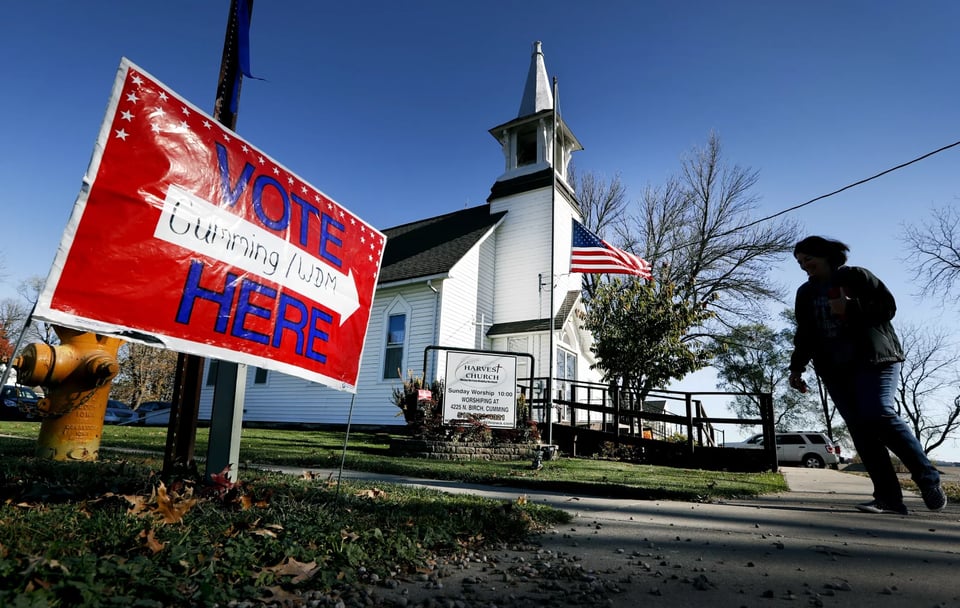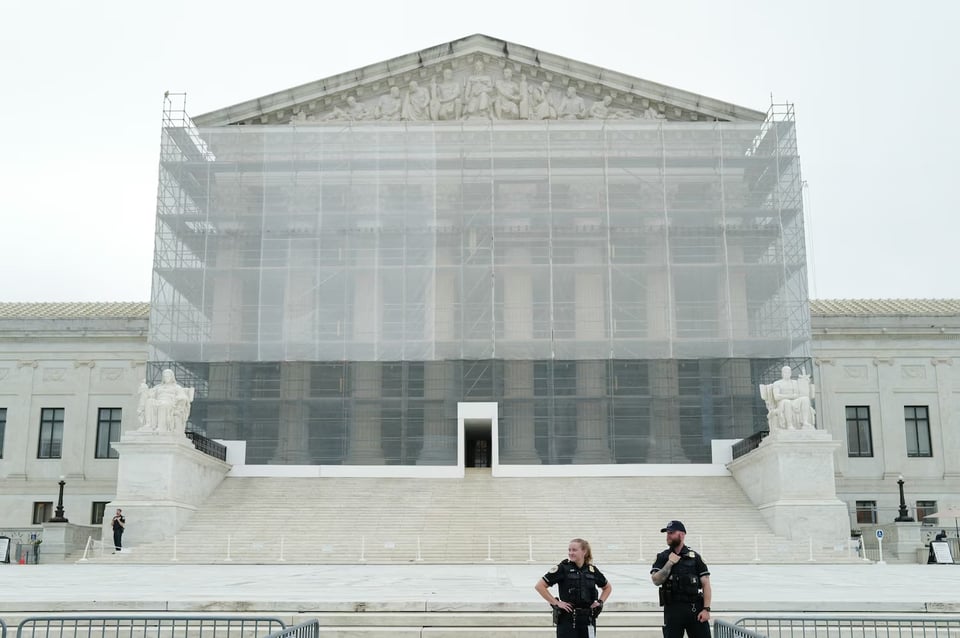Wednesday, July 9,2025. Annette’s News Rounduo.
The World keeps turning upside down, if only temporarily.
First came Trump’s Ugly Law.
Lawrence Summers: This Law Made Me Ashamed of My Country

Last week, Robert Rubin and I warned of the many macroeconomic risks created by the domestic policy bill President Trump signed into law on Friday. I stand by our judgment that it will most likely slow growth, risk a financial crisis, exacerbate trade deficits and undermine national security by exhausting the government’s borrowing capacity. This is more than ample reason to regret its passage.
I want to return to the topic after conversations with health professionals, including my daughters, who practice medicine and social work in rural New Hampshire. They made me realize that a focus on macroeconomics, while valid, misses the human brutality that I now see as the most problematic aspect of the legislation. I don’t remember on any past Fourth of July being so ashamed of an action my country had just taken.
Over the holiday weekend, while the president was celebrating tax cuts that over 10 years will deliver an average of more than $1 million to families in the top 0.1 percent of the income distribution, medical professionals were considering questions like these:
What should they say to seriously disabled patients, who can live at home only because Medicaid pays for rides to their medical appointments, now that those people could lose that coverage?
What should they recommend to the relatives caring for poor patients at home, who will no longer be able to work when payments for home-health aides are no longer available?
How should they advise the hospital to handle patients who can’t afford rehab or nursing facilities and can’t live at home, but who currently occupy rooms desperately needed by acutely ill patients?
Should they still feel proud of and committed to the work of giving comfort to the lonely, poor and elderly, when their country’s leaders have decided that more money for the most fortunate is a higher priority?
How can they face patients who will be evicted from the hospital with perhaps as little as a cab voucher when their stays end?
After we talked about these questions, it occurred to me to think about precedents in American history — other moments when the social safety net was cut — to see what followed. Did the feared consequences materialize? Were errors corrected?
I am plenty negative about this president and this moment. Even I was unpleasantly surprised by what I learned.
This round of budget cuts in Medicaid far exceeds any other cut the United States has made in its social safety net. The approximately $1 trillion reduction, over 10 years, represents about 0.3 percent of gross domestic product. Previously, the most draconian cuts came with President Ronald Reagan’s 1981 tax law. But they were far smaller — $12 billion over 10 years and 0.03 percent of G.D.P. The Trump law will remove more than 11 million people from the rolls, compared with about three million under the Reagan cuts. Other noteworthy reductions to the social safety net, such as the Clinton-era welfare reform, were even smaller.
Because Medicaid is a state-level program and varies widely across the country, economists can evaluate the impact of alternative policies. A number of studies suggest that removing one million people from the rolls for one year could result in about 1,000 additional deaths. It follows that removing more than 11 million people for a decade would probably result in more than 100,000 deaths. Because this figure fails to take account of the degradation of service to those who remain eligible — fewer rides to the hospital, less social support — it could well be an underestimate.
The administration claims its policies, such as adding work requirements for Medicaid eligibility, bear only on the able-bodied. I have supported the general idea of work requirements for cash welfare based on a common-sense idea of fairness. But a careful evaluation of an experiment in Arkansas confirms what common sense also suggests — imposing work requirements on a population in need of health insurance does not increase work and does inhibit necessary care.
The cruelty of these cuts is matched only by their stupidity. Medicaid beneficiaries will lose, but so will the rest of us. The cost of care that is no longer reimbursed by Medicaid will instead be borne by hospitals and passed onto paying patients, only at higher levels, because delayed treatment is more expensive. When rural hospitals close, everyone nearby loses. Hospitals like the one where my daughters practice can no longer accept emergencies by air because those beds are occupied by patients with chronic diseases and no place to go.
Because of the congressional instinct for political survival, the Medicaid cuts are backloaded beyond the 2026 midterms. Cynicism may have a silver lining. As more people realize what is coming, there is time to alter these policies before grave damage is done. TACO — Trump always chickens out — is a doctrine that should apply well beyond financial markets. (New York Times - Op-ed)
One more thing.
The ugly bill may provide the path we travel on to stop Trump.
Michelle Goldberg: How to Make Senate Republicans Pay for Their Awful Bill

It’s hard to think of a major piece of legislation more hated by more people than the monstrous bill Republicans passed last week. It is, of course, almost universally reviled by Democrats, but there’s also opposition to it in every part of the Republican coalition. Susan Collins, perhaps the most moderate Republican senator, and Rand Paul, one of the most conservative, both voted against it. Elon Musk called it “insane” and threatened to form a new political party over it. Senator Lisa Murkowski tried to distance herself from it immediately after casting the craven vote that put it over the top.
In a June Quinnipiac poll, only 29 percent of respondents, including a relatively anemic 67 percent of Republicans, approved of the bill, which makes deep cuts to Medicaid and food stamps while adding trillions of dollars to the national debt. As Republican leaders twisted arms in the House to get it over the finish line, Steve Bannon, a critic of parts of the bill, warned about the implications for the midterms if “feckless” Republicans didn’t find a way to defend it.
Had Dan Osborn won his independent Senate campaign in Nebraska last year, it’s possible the bill never would have passed. Now, as he starts a new independent run for the Senate, he thinks some Republicans have buyer’s remorse. “They were sold a bill of goods that if you work hard in this country, your government is going to be there, to have a level playing field for you to get ahead,” Osborn, who is announcing his candidacy on Tuesday, told me. “But now we’re seeing tax cuts for the billionaires at the expense of workers, people that are struggling to get by.”
A big question — and not just in Nebraska — is whether the pain caused by this bill will be enough to shake partisan loyalties. Democrats are favored to win the House next year, but the party faces a brutal Senate map. It’s defending seats in purple states like Georgia and Michigan and can’t flip the chamber without upsets in some states that are bright red.
The bill, however, could make Republicans’ position a little weaker. In May, Senator Joni Ernst of Iowa responded to a constituent frightened about the deadly consequences of Medicaid cuts with a sarcastic, “Well, we all are going to die.” Her comments helped push J.D. Scholten, a popular Democratic state representative and professional baseball player, to challenge her. The Center for Politics at the University of Virginia, which had rated the seat “safe Republican,” now says it’s only “likely Republican.”
And last week, after Donald Trump drove Senator Thom Tillis, a North Carolina Republican, to announce retirement plans over Tillis’s opposition to the tax bill, The Wall Street Journal’s conservative editorial board proclaimed, “Trump Puts the Senate in Play in 2026.”
A competitive race in Nebraska would certainly help. When Osborn ran in 2024, he distanced himself from the Democrats; he said that if he won, he wouldn’t caucus with either party, and he refused to say who he’d supported for president. On economic matters, however, he’s largely in line with the Democrats’ progressive wing.
“I love this country,” he said last week. “I love my state. I love the ideas America is supposed to stand for, and right now, I feel like that is under threat from corporations and billionaires carving it up for themselves.”
While campaigning last year against Deb Fischer, a Republican who has represented Nebraska in the Senate since 2013, Osborn often spoke about his history as a union leader who led a successful strike against the Kellogg plant in Omaha. (It ended after 77 days, with the company agreeing to meet most of the union’s demands.) In a state where many voters consider the Democratic Party culturally alien, he tried to neutralize the power of partisanship by running as an independent. But in the end, while Osborn won over some Trump supporters, his class-based appeal fell short. In a state Trump carried by more than 20 points, Osborn lost by a little under seven.
There are some reasons for optimism that he could do better next year, when he’ll be running against Pete Ricketts, Nebraska’s other Republican senator. Trump won’t be on the ballot, and in the past, some Trump voters failed to turn out in midterms. According to an April poll by Osborn’s team, while Trump’s approval rating in Nebraska is 55 percent, Ricketts’s is only 38 percent. Osborn plans to draw a contrast between Ricketts’s silver-spoon background — he’s a son of the billionaire Joe Ricketts, founder of the brokerage firm TD Ameritrade — and his own working-class credentials. “It’s going to be the C.E.O. versus the guy from the shop floor,” he said.
But what’s likely to matter more than anything else is the degree to which the Republican bill has started to bite by Election Day. Jeremy Nordquist, the president of the Nebraska Hospital Association, told me that because of the new law, six rural Nebraska hospitals could close and six more are endangered. Just last week, the Community Hospital of McCook announced that it was shuttering its medical center in Curtis, Neb., a town of fewer than 1,000 people, because of what it called “the current financial environment, driven by anticipated federal budget cuts to Medicaid.”
Larry Sabato, the director of the Center for Politics at the University of Virginia, pointed out that even if Republican voters lose access to health care, it’s far from a given that they’ll hold their party responsible. “Even if it’s clearly the Republicans who’ve done it, they’ll find a reason to blame the Democrats,” he said.
Osborn is going to try to break through this filter by speaking in person to as many of the state’s voters as possible. In 2024 he held 200 campaign events. This time he’s aiming for 300. “I’ve got to go out, and I’ve got to listen to people, because that’s what it’s all about, right?” he said. Though his politics are very different from the New York Democratic mayoral candidate Zohran Mamdani’s, their strategies are similar: Go everywhere, make voters feel heard and maintain a relentless focus on the increasingly punishing cost of living.
Sabato is skeptical it will work in Nebraska. “I’ve been around for decades, and I have heard all these stories and proposals and paths to victory, and the vast majority of them never happen,” he said. At the same time, he acknowledged, “I’m surprised every election cycle by a few races. You never know which ones.” Osborn is a long shot, but long-shot campaigns are the only hope we have for making Republicans in Washington answer for what they’ve just done. (New York Times Op-ed)
Then, the IRS removed the separation between church and state.
IRS says churches can now endorse political candidates.

In a break with decades of tradition, the Internal Revenue Service says it will allow houses of worship to endorse candidates for political office without losing their tax-exempt status.
The surprise announcement came in a court document filed on Monday.
Since 1954, a provision in the tax code called the Johnson Amendment says that churches and other nonprofit organizations could lose their tax-exempt status if they participate in, or intervene in "any political campaign on behalf of (or in opposition to) any candidate for public office."
The National Religious Broadcasters and several churches sued the IRS over the rule, arguing that it infringes on their First Amendment rights to the freedom of speech and the free exercise of religion.
The IRS rarely enforced the rule. During President Trump's first term, he promised to "get rid of and totally destroy the Johnson Amendment and allow our representatives of faith to speak freely and without fear of retribution."
In Monday's court filing, the IRS didn't go that far. But it did say that when a house of worship "in good faith speaks to its congregation, through its customary channels of communication on matters of faith in connection with religious services, concerning electoral politics viewed through the lens of religious faith" it neither participates nor intervenes in a political campaign.
Rather, the IRS compared religious institution's endorsement of candidates to a "family discussion."
"Thus, communications from a house of worship to its congregation in connection with religious services through its usual channels of communication on matters of faith do not run afoul of the Johnson Amendment as properly interpreted." (NPR)
The Court Filing Itself by the IRS, if you want to read it.
Last, on a bad day for Democracy.
Supreme Court allows Trump to move forward with plans for mass firings, reorganization of the federal government

The Supreme Court is allowing President Donald Trump to move forward with an executive order mandating a restructure of federal agencies and mass layoffs of federal workers.
In a two paragraph unsigned order, the court explained that it was lifting a preliminary injunction issued by a district court in California because "the government is likely to succeed on its argument that the Executive Order and [OMB] memorandum are lawful."
The court noted, however, that the justices "express no view on the legality of any Agency RIF [reduction in force] and Reorganization Plan produces or approved" by the administration under Trump's direction. "Those plans are not before this Court," it said.
The decision, another victory for Trump at the Supreme Court, allows the government to begin taking steps to dramatically overhaul 21 agencies and departments, including the departments of Commerce, Health and Human Services, Energy, Treasury and State.
Justice Sonia Sotomayor, in a brief statement concurring with the court's decision, emphasized that the legality of the administration's plans themselves has not yet been answered.
Justice Ketanji Brown Jackson was the sole dissent in the matter. In a 15-page opinion, the junior justice called the decision "not only truly unfortunate but also hubristic and senseless."
The coalition that brought the case -- which includes labor unions, non-profit organizations and cities and counties in California, Illinois, Maryland, Texas and Washington -- called the Supreme Court's decision a disappointment.
"Today's decision has dealt a serious blow to our democracy and puts services that the American people rely on in grave jeopardy. This decision does not change the simple and clear fact that reorganizing government functions and laying off federal workers en masse haphazardly without any congressional approval is not allowed by our Constitution," the coalition said in a statement. "While we are disappointed in this decision, we will continue to fight on behalf of the communities we represent and argue this case to protect critical public services that we rely on to stay safe and healthy." (ABC News)
Justice Ketanji Brown Jackson was the lone dissenter. In a 15-page opinion, she contended that Thursday’s ruling would “allow an apparently unprecedented and congressionally unsanctioned dismantling of the Federal Government to continue apace, causing irreparable harm before courts can determine whether the President has the authority to engage in the actions he proposes.” (Scotusblog)
Now, another moment of hope.
First, we win in 2026. Then, pick a candidate who might win in 2028.
Here is one contender. He might not be who you think he is.
Everyone loves Andy Beshear.
How do Democrats win back the communities we lost. Andy Beshear may have something that looks like the answer.
The Kentucky governor, fresh off a double-digit re-election in a state Donald Trump carried by 26 points, has become a case study in how Democrats can govern unapologetically while still building a broad and durable coalition. Now, with his recent comments that a 2028 presidential bid is “on the radar,” he’s offering the national party something it desperately needs:
Not just a new face, but a new model of communication — one rooted in clarity, confidence, and something more rare these days — moral warmth.
Beshear’s rise offers a lesson in how Democrats build a big tent without becoming a circus. He doesn’t triangulate so much as he translates — taking progressive outcomes and communicating them through the language of shared values, not ideological sorting.
Under Beshear, Kentucky has expanded access to healthcare, protected reproductive rights in a state where voters overwhelmingly rejected an anti-abortion amendment, and led with empathy in response to devastating natural disasters. These aren’t small things. But he doesn’t frame them as ideological wins — he frames them as the job.
And the voters reward him for it.
For the past several years, there’s been a tendency to treat the Democratic coalition like a puzzle that no one can quite put together. Young voters, suburban women, Black and Latino voters, rural independents — it’s an unruly, often contradictory set of interests and identities. But Beshear doesn’t try to slice and dice his messaging for each sliver of the electorate. He makes a broader, more human appeal.
Political scientists have long noted that people don’t just vote on issues — they vote on affect, on identity, on whether a candidate seems to be “for people like me.” Beshear, a Democrat in one of the reddest states in the country, has figured out how to collapse the distance between his party and his people.
There’s a misread of Beshear that casts him as simply “moderate.”
That’s not wrong on its face — he isn’t a firebrand, and he’s careful about which fights he picks. But moderation implies dilution, and that’s not what’s happening here. Beshear doesn’t dilute his beliefs — he recasts them in moral terms.
On reproductive rights, for example, he vetoed a 15-week abortion ban in 2022, citing rape exceptions and the harm the law would do to victims of incest. That wasn’t just a policy veto — it was a values statement. And when the legislature overrode him, he didn’t quietly move on. He ran ads about it. He spoke plainly and emotionally. He didn’t let the GOP own the moral narrative.
That may be Beshear’s most powerful — and instructive — trait: he refuses to forfeit the emotional terrain. He doesn’t yield empathy or faith or family to the right. Instead, he reclaims them for a politics rooted in actual care.
In a post-Biden, post-Harris landscape, Democrats will be looking for candidates who aren’t weighed down by the controversies and concessions of the past few years. Beshear’s distance from Washington, and from the inner ring of Bidenworld, is part of what gives him freedom. He’s not carrying the scars of the 2024 defeat. And he’s not afraid to speak to the country’s wounds.
Beshear begins this interview on CNN, talking about the cuts to Medicaid in Trump’s bill.👇
Later in his CNN interview, Beshear didn’t say he wanted to run for president. He said he doesn’t want to leave a broken country to his kids. That’s a different kind of answer. It’s not political ambition framed as duty — it’s duty framed as love. And whether he runs or not, that’s a lesson Democrats should absorb.
Because ultimately, Beshear isn’t winning in Kentucky because he’s moving right. He’s winning because he’s moving forward — grounded in a politics that speaks to people where they are, and calls them toward something better.
That’s not moderate. That’s just smart. And it might be the most important thing Democrats learn between now and 2028.
There’s a temptation in Democratic politics — especially at the national level — to speak in disclaimers. To pre-apologize. To hedge every proposal in wonk-speak, every value in compromise, every political identity in parentheses.
In the shadow of an electorate that feels impossibly fractured, the instinct is to shrink the self.
Andy Beshear didn’t get that memo. (Democratic Win Media)